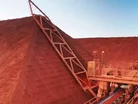BHP expects job cuts at Worsley Alumina after efficiency review

BHP Billiton has confirmed the completion of a 4-year project that focused growth and efficiency, leading to a review of the number of roles need for operation at the Worsley Alumina site in the south west corner of Australia. The company has made it clear that the review will lead to job cuts for BHP, but a specific number has not been made clear.
There are currently 1,200 employees at Worsley Alumina, ranging from jobs created through the employment of subcontractors and support from local businesses and suppliers. Last year, a major expansion of operations was completed, leading the business into a phase designated for stabilisation. Since then, redundancies have been detected in their operations.
Several people have commented on the potential for job loss at the site, including an official spokeswoman for the company and the CEO of the Bunbury Chamber of Commerce and Industries.
“With no new projects planned for the next five years, the organisational structure of Worsley is under review,” said the BHP spokeswoman. “This includes reviewing the nature and number of roles needed to support safe and efficient production and ensure Worsley has a sustainable future. We don’t intend to provide any detail about specific adjustments, but clearly there may be some impact on jobs in some areas. The review is ongoing and no operational disruptions are anticipated.”
Ray Philp, Bunbury Chamber of Commerce and Industries CEO has chalked up the job losses to a change of phase at the site, which many in the construction sector expect.
“It is about a change of roles, from a construction to an operation workforce so the construction workers aren’t required anymore,” he said. “I think people who are in the construction workforce are used to working based on the projects as they happen.”
Bunbury in involved from an export standpoint with the mine. An expansion to the mine in 2000 (construction on the mine and refinery began in 1980) caused an increase in production. Now, around 3.1 million tonnes a year are carted by rail and exported through the Port of Bunbury.
- Focus on: Nickel, a key metal in the EV revolutionSupply Chain & Operations
- Why Nickel Price Slump has hit BHP so HardSupply Chain & Operations
- The Battle for Control of Rare Earth Minerals Supply ChainSupply Chain & Operations
- Australia Looks to Loosen China's Grip on Critical MineralsSupply Chain & Operations



